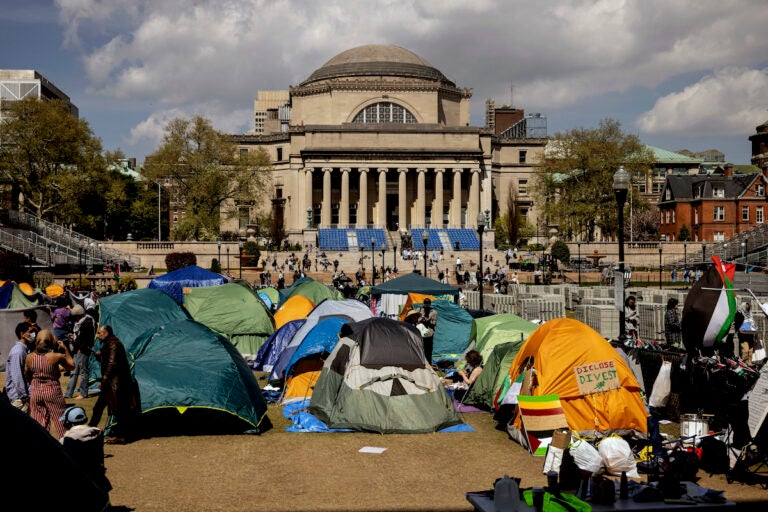Harvard Under Siege: Trump Administration Demands Decade of Foreign Funding Records
The Trump administration on Friday formally demanded that Harvard University surrender comprehensive records of its foreign funding sources and relationships spanning the past decade, threatening billions in federal support and potentially altering the landscape of academic research in the United States.

The April 18 letter from the Department of Education to Harvard's president set a 30-day deadline for compliance, citing "incomplete and inaccurate" disclosures made by the university between 2014 and 2019 and warning of severe consequences for failure to comply.

"This administration will not stand by while elite institutions potentially expose themselves to foreign manipulation or do the bidding of entities hostile to American interests," Secretary of Education Linda McMahon stated in connection with the investigation.
"Unprecedented Governmental Overreach" vs. "Necessary National Security Measures"
The sweeping demands require Harvard to disclose identities of all foreign funding sources over the past decade, along with related contracts and communications. The government is also seeking information about foreign students expelled since 2016, including their research funding sources, and comprehensive lists of visiting researchers, scholars, and faculty affiliated with foreign governments.
Harvard administrators describe the demands as an extraordinary intrusion into university governance. "What we're witnessing represents an unprecedented level of governmental overreach into the operations of an independent academic institution," a senior Harvard official said, speaking on condition of anonymity due to the sensitivity of ongoing discussions.
The university has responded with defiance, asserting compliance with federal law while categorically rejecting what it characterizes as demands that would compromise institutional autonomy. This stance has resonated with alumni, who contributed over $1 million in online donations within 24 hours of Harvard's announcement of its position.
Supporters of the administration's actions counter that the scrutiny is both legally justified and necessary. "Universities receiving billions in taxpayer dollars must be transparent about foreign influence, particularly when it could impact sensitive research or national security," noted one policy analyst specializing in higher education governance.
Section 117 of the Higher Education Act requires U.S. universities to disclose gifts received from and contracts entered into with foreign sources above a specific monetary threshold. This reporting is intended to provide transparency regarding foreign funding and influence within American higher education institutions.
Financial Warfare: Billions in Funding Frozen
The administration has already taken concrete punitive actions, freezing approximately $2.2-2.3 billion in federal research grants to Harvard and canceling $2.7 million in Department of Homeland Security grants. These moves represent only the opening salvo in what could become an existential financial threat to the university's operations.
Breakdown of Harvard University's operating revenue sources for a recent fiscal year.
| Revenue Source | Percentage of Total Revenue (FY2024) | Amount (FY2024, USD) |
|---|---|---|
| Endowment Distribution used for Operations | 37% | $2.4 billion |
| Net Student Income (Tuition, Fees, Housing, etc.)* | 21% | $1.4 billion |
| Sponsored Support (Federal and Non-Federal Research) | 16% | ~$1.04 billion** |
| Gifts for Current Use | 8% | $528 million |
| Other (Continuing Ed, Royalties, Services, etc.)*** | 18% | $883 million |
Additional threatened measures include revocation of Harvard's tax-exempt status and termination of its Student and Exchange Visitor Program certification, which would effectively end its ability to enroll international students—a crucial source of both intellectual diversity and tuition revenue.
The Student and Exchange Visitor Program (SEVP) is a U.S. government program managing schools and international students (F & M visa holders). Its purpose includes certifying educational institutions, which allows them to enroll these nonimmigrant students and exchange visitors.
"The immediate impact on research is devastating," explained a Harvard medical researcher whose lab relies on NIH funding. "Projects addressing critical public health challenges are now in limbo, with talented personnel facing potential layoffs if this isn't resolved quickly."

For Harvard's investment portfolio and operations, the implications are profound. With up to $9 billion in total federal support potentially at risk, the university faces difficult decisions about resource allocation and may need to dramatically restructure its research enterprise if the standoff continues.
A Broader Campaign Against Elite Universities
The records request is part of a multi-faceted campaign targeting elite universities over issues including pro-Palestinian campus protests, diversity initiatives, and allegations of antisemitism.

"We're seeing the weaponization of federal oversight against institutions perceived as ideologically opposed to the administration," said a constitutional law expert who has studied government relations with higher education. "The specific demands regarding foreign students and funding sources are technically within the government's authority, but the breadth and aggressive enforcement represent a troubling development for academic freedom."
Under Section 117 of the Higher Education Act of 1965, universities receiving federal financial aid must report foreign gifts and contracts valued at $250,000 or more annually. The administration claims Harvard's previous filings violated these requirements, while simultaneously connecting these alleged violations to broader concerns about campus culture and governance.
Historical Context: Not Harvard's First Foreign Funding Scrutiny
This is not the first time Harvard has faced federal scrutiny regarding international relationships. In 2020, the Department of Education investigated the university's ties to foreign governments and companies, including entities from China, Iran, Russia, Qatar, and Saudi Arabia, amid concerns about "academic espionage" and improper influence.
Academic espionage involves the theft of intellectual property or sensitive research from universities, often for the benefit of foreign governments or entities. Concerns about foreign influence extend to the potential risks associated with foreign funding or partnerships, which could compromise research integrity, academic freedom, or pose national security threats.
What distinguishes the current investigation is its unprecedented scope and the explicit linking of compliance issues to punitive financial measures and threats to institutional autonomy. Some education policy observers see this as an inflection point in the relationship between the federal government and universities.
"Even during past periods of intense political pressure on higher education, we've never seen this combination of regulatory enforcement, financial penalties, and explicit threats to institutional governance," noted a historian of American higher education. "The outcome of this confrontation will establish precedents affecting universities nationwide."
Market Implications: Beyond Harvard's Walls
For investors watching this confrontation, the implications extend far beyond Harvard Yard. The dispute signals heightened regulatory risk for organizations with substantial international ties, particularly in research-intensive sectors like biotechnology, pharmaceuticals, and advanced technology.
Companies partnering with Harvard on research initiatives now face uncertainty about the continuity of those relationships and the status of intellectual property developed through federally funded research. Startups incubated through Harvard innovation programs may find their funding pathways disrupted if the university must reallocate resources.
Market analysts are particularly concerned about the precedent being established. "If regulatory compliance can be weaponized this aggressively against an institution with Harvard's resources and influence, virtually any organization with international connections could face similar tactics," warned an investment strategist specializing in regulatory risk.
Resolution Pathways and Long-term Impact
As the 30-day compliance deadline approaches, several potential scenarios emerge. Harvard could seek judicial intervention, challenging the scope of the government's demands on constitutional and statutory grounds. Alternatively, negotiation could produce a compromise framework for increased transparency while preserving core institutional autonomy.
What seems unlikely is capitulation. "Harvard has both the resources and the motivation to fight this battle on multiple fronts—legal, political, and in the court of public opinion," observed a former Department of Education official.
The long-term impacts of this confrontation will likely reshape university governance, foreign engagement policies, and the relationship between academic institutions and the federal government. Universities nationwide are already reviewing their foreign funding disclosure practices and establishing enhanced compliance mechanisms in anticipation of increased scrutiny.
For Harvard specifically, the crisis has prompted a fundamental reassessment of its funding model and international strategy. "We're looking at a diversification of research support, enhanced private philanthropy, and potentially new institutional partnerships to reduce vulnerability to similar actions in the future," revealed a university financial officer involved in contingency planning.
As this unprecedented standoff unfolds, one certainty emerges: the landscape of academic research, international academic collaboration, and university-government relations is being fundamentally altered, with implications that will reverberate through higher education and adjacent sectors for years to come.
